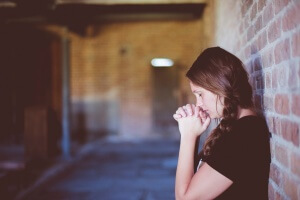Legal Action Taken Against Group That Tried to Stop School Prayer
March 23rd, 2018

A high school in Ohio discontinued its practice of school prayer before sporting events after receiving a cease and desist letter, but now another group is suing to have the practice re-instated.
Members of an Ohio community have initiated an action against a group that tried to pressure a high school to ban its tradition of school prayer before sporting events. The Freedom from Religion Foundation reports that the organization received a complaint from two concerned citizens who alleged serious violations of the constitution by the West Branch High School in Beloit. After receiving a cease and desist letter, the school district discontinued the practice of having a local pastor give a nondenominational prayer prior to sporting events.
Arguments Involved in the Case
First Liberty Institute, which is a nonprofit law firm that advocates for religious freedom, states that legal counsel is investigating the issues faced by students. These students argue that they have the right to pray before sporting events and that opponents need to cease attempting to stop students who try to do so. Other people, however, support this prohibition on school prayer before sporting events.
Law Involved in School Prayer
The legal standard that decides cases of this nature was articulated in the 2000 decision of Santa Fe ISD v. Doe in which the United States Supreme Court decided on a balance between the constitutionality of school prayer and prohibitions against religious activities in school. In this case, the court analyzed whether a school district’s policy permitting student-led prayer over the public address system at public high school football game violated the Establishment Clause. The dispute arose because Doe challenged the Santa Fe High School system’s policy, which permitted students who held the elective office of Student Council Chaplain to deliver school prayer over the football stadium’s PA system before each game. The Supreme Court found that because the school was a public institution that was involved in the selection of speakers who broadcast messages to a captive audience, this could be interpreted as prayer at a school-sponsored event. As a result, the court found this activity was in violation of the Establishment clause.
This case also clarified the Supreme Court’s perspective that the Establishment clause does not prohibit students from voluntarily praying at any time in a public school. These violations, the court noted, occur only when the school affirmatively sponsors the particular religious practices of prayer. As a result, only prayer or religious activity initiated by public schools (or any government agent) are prohibited. Based on this case, the Supreme Court established grounds that student-athletes acting on their own without involvement of any school or government appear to be permitted to engage in prayer or religious activity.
Continue Reading the Universal Life Church’s Blog
This case represents just one of the complicated issues involving religious practices and schools. The Universal Life Church’s blog aims to describe developments in this area of the law. By continuing to read our blog, you can remain up to date with the latest developments that occur.
(image courtesy of Ben White)


